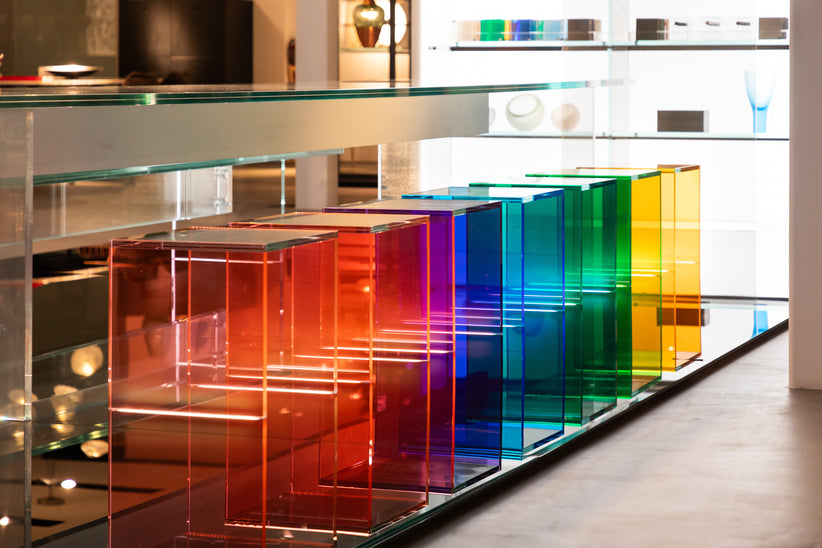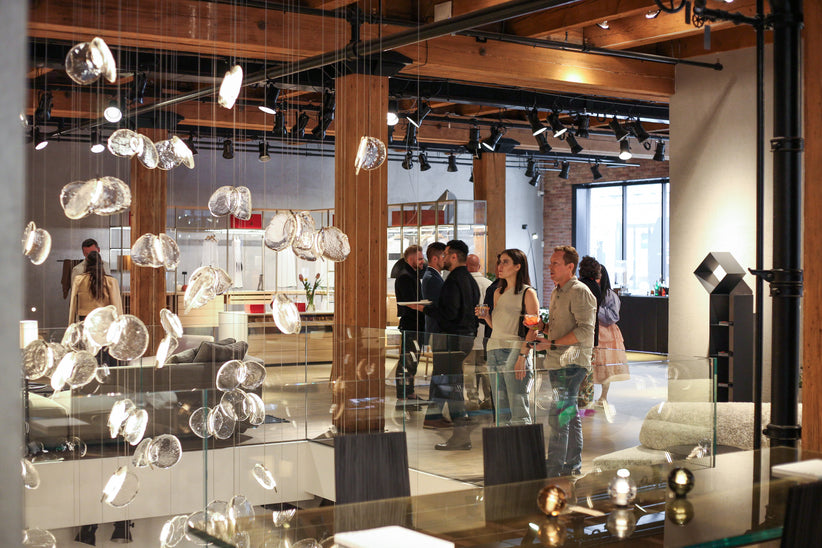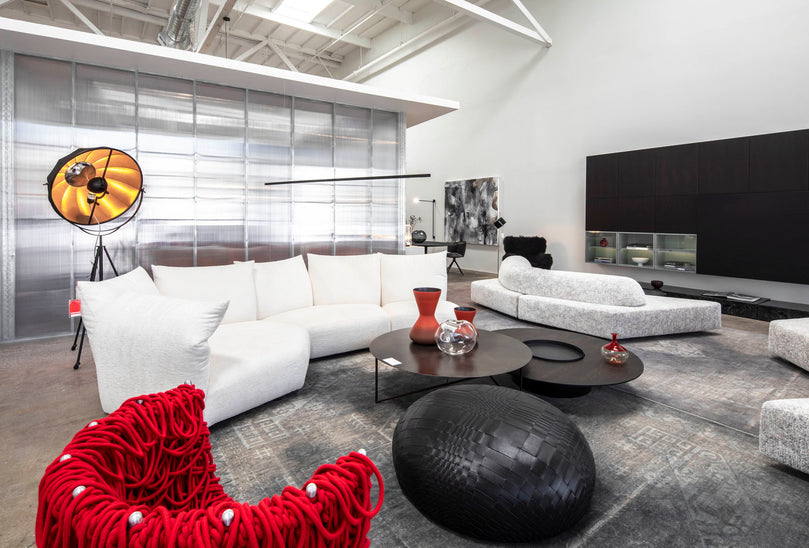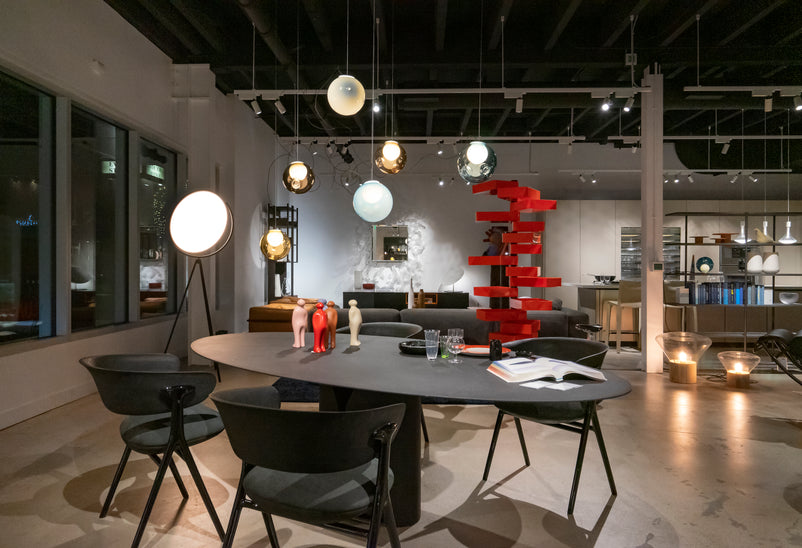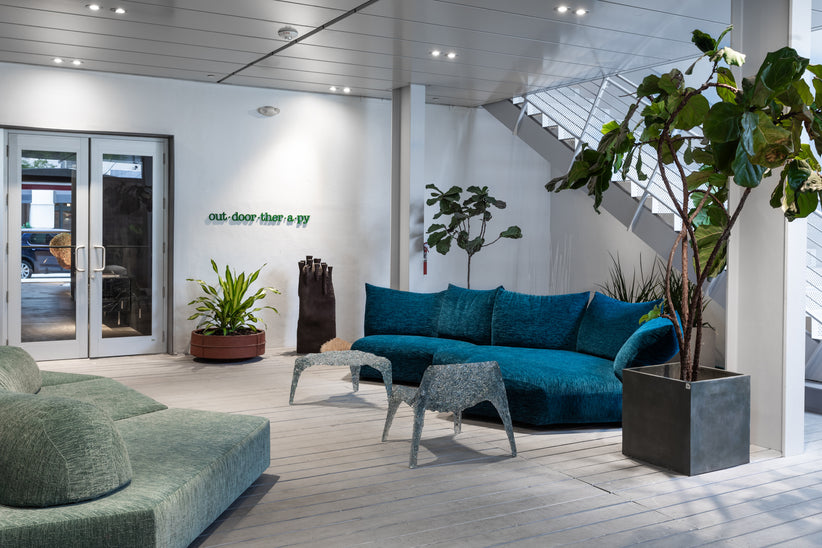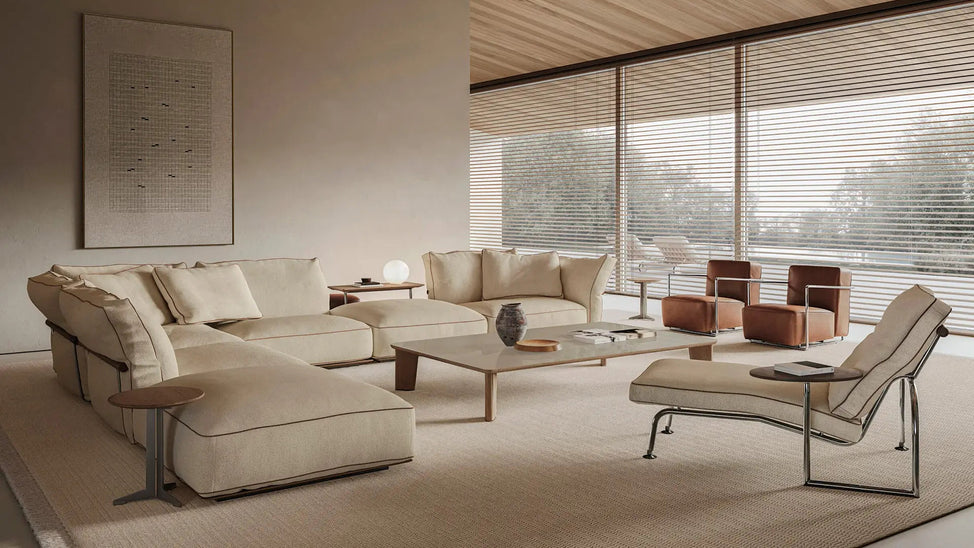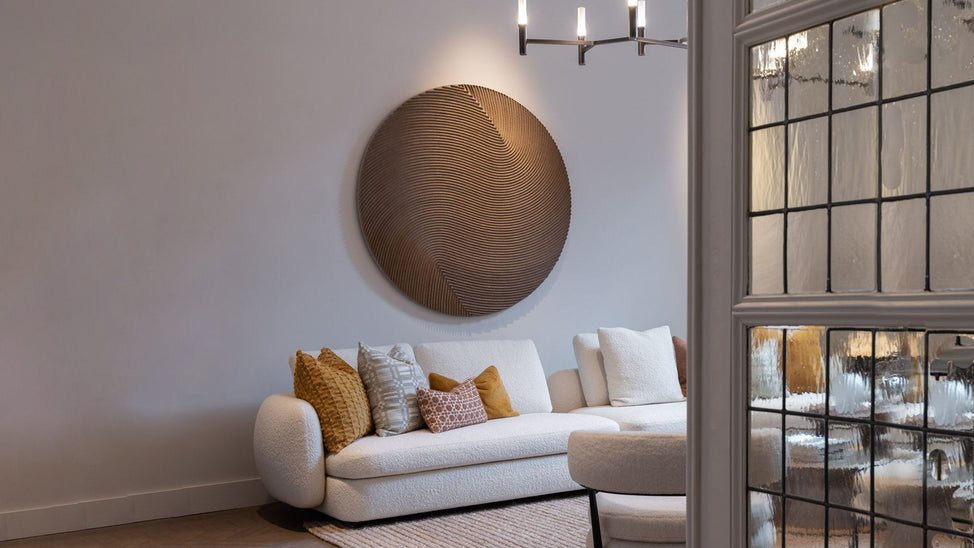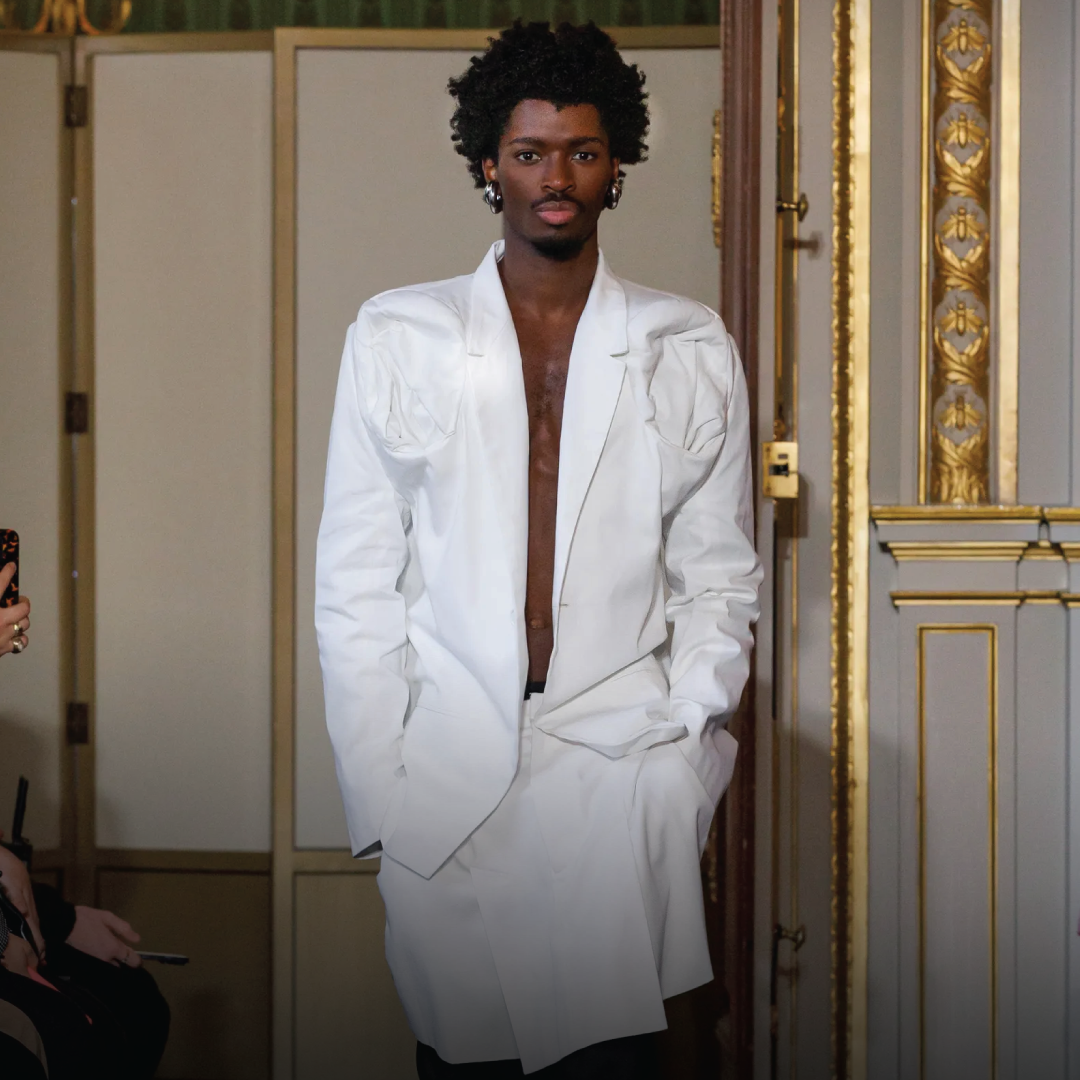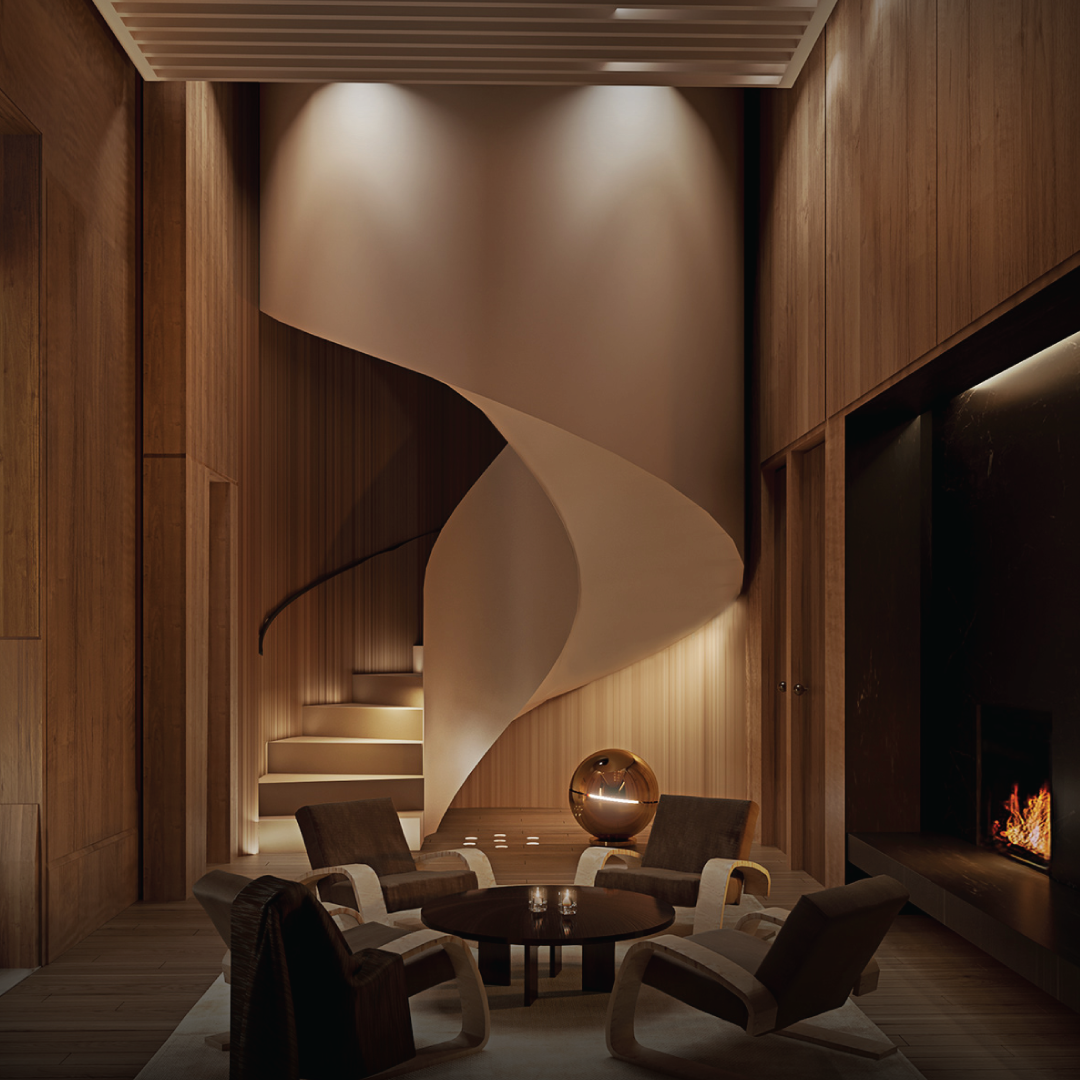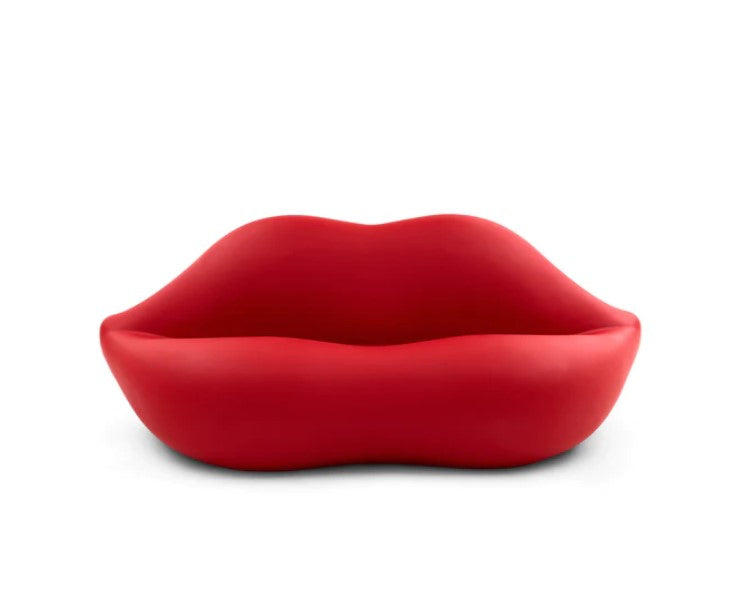Elegant in structure with a touch of whimsy vibrating throughout a graceful and refined composition, energetic folds of fabric take exceptional and uncommon form, enveloping the body with relaxed style and at times vivid spectacle, arresting and unique but not without the coordinated poise that makes good design a great event, stunning and self-possessed. This is the work of young, ambitious fashion designer, Torishéju Dumi, new to the scene but, with a dramatic and enthusiastically lauded show at Paris Fashion Week under her belt, promises to awaken the senses with expressive designs that inspire joy and sophistication under a fashion brand of the same name. According to Torishéju, she aims to craft new silhouettes for the fashion industry, focusing on details that excite while oscillating between the cultured and the sublime in a harmonious whole, cutting-edge, clever, and polished with distinction.
Born and raised in North West London to a Nigerian mother and a Brazillian-Nigerian father, Torishéju found her muse in 19th century art, an interest she inherited from her mother, and in her Catholic upbringing, where religion, tradition, and spirituality inform the ethereal and at times priestly expression of her work. For her fashion show in Paris, long flowing coats and blazers punctuated with regal details like protrusions on the shoulders and lapel recall the stately and ceremonial robes she wore as a youth working at the altar of her church. For Torishéju, getting dressed for the occasion was a marvelous and dignified event, and with her clothes, one can feel majestic and august, transported to a space where confidence and aplomb reign supreme. In other pieces, varied swaths of fabric are twisted and folded in on each other, and in some places foam hoops are wrapped in cloth to create visually appealing contours and captivating forms, giving the wearer a luxurious and buoyant exclusivity unique to her work.
While from the front, Torishéju’s work can appear animated with rounded edges or sleek and structured with clean lines and well-composed configurations, it is from the back that her designs truly take shape as arresting and one-of-a-kind, as she makes use of ties, wraps, and trains to forge profiles that are distinct and eye-catching. This wrapping and playing with fabric was in part inspired by time spent finishing her studies during the pandemic, where she had to learn to be resourceful and make use of what fabric she had, and in part informed by the casual elegance of traditional Nigerian lappa garments, which when paired with deconstructed British tailoring, can add a sophisticated yet playful sense of camaraderie and style. Overall, we discover limitless inspiration in the work of Torishéju, and look forward to witnessing what new designs can grace our bodies as we move through the world with self-assured conviction and fanciful transcendence.
January 2024


